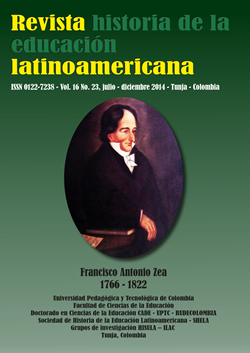Two Exceptional Witnesses of Latin American Independence: The Prussian Explorer Alexander Von Humboldt and The Virginian Politician Thomas Jefferson

Abstract
This paper analyzes Alexander von Humboldt and Thomas Jefferson’s respective positions regarding the independence of Spanish colonies in South America, as well as the way these views were determined by their own personal experiences. Humboldt is an observer of the political situation just before the beginning of the independence movements. Jefferson is an important actor in both the US independence process and the subsequent creation of a new society. Their respective stands on Spanish America independence movements cannot be studied unrelatedly to the conclusions they draw from both the French Revolution and its consequences. This work shows the way both figures discussed these events through the correspondence they exchanged. Last, through these distinguished representatives of the Old and the New World, similarities and differences in the way these political events were addressed from both sides of the Atlantic are also assessed.
Keywords
Journal History of Latin American Education, independence movement, Latin America, Enlightenment, Atlantic history, history of ideas.
Author Biography
Sandra Rebok
Vicepresidenta Adjunta de Cultura Científica, Consejo Superior de Investigaciones Científicas (CSIC), Madrid, España.